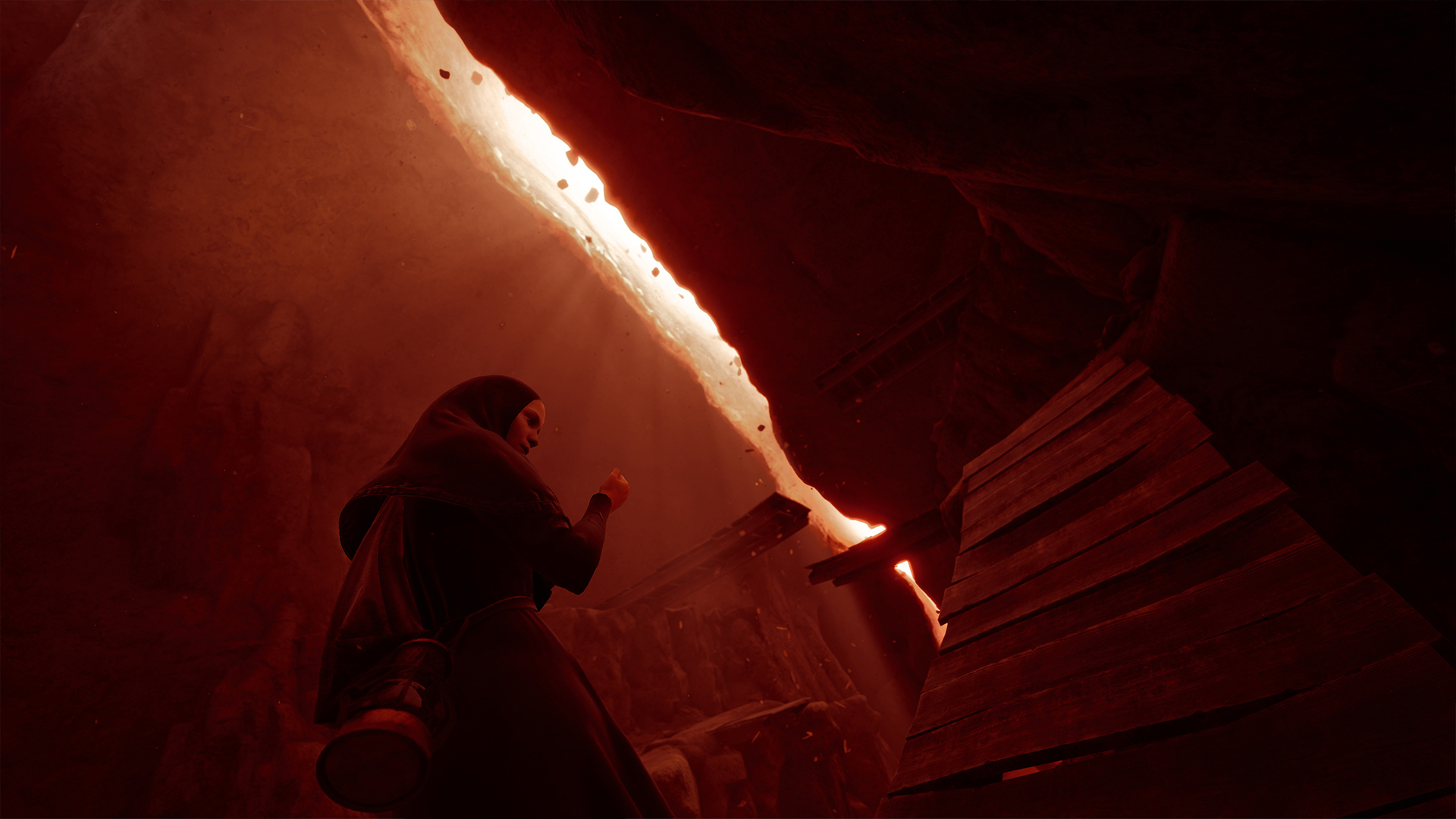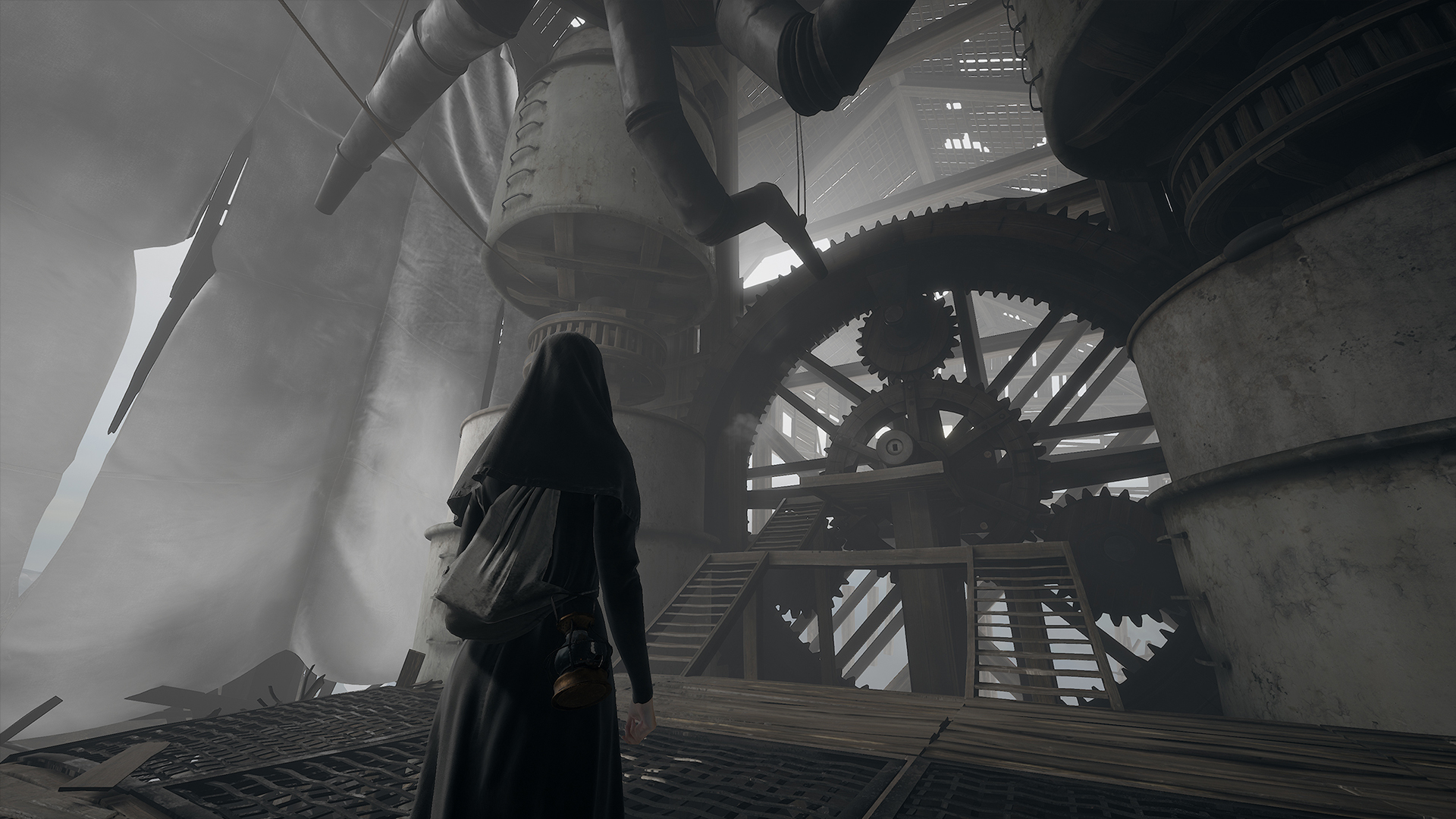The devs of this 'freaky and grotesque' adventure game about a Russian Orthodox nun left Moscow after the invasion of Ukraine, and they're out 'to show that people and authorities are not the same thing'
The narrative of Indika's development is almost as unique as the narrative of Indika.
Not many games have a story like Indika, a game about a 19th century Russian Orthodox nun journeying to the centre of her soul with an "unusual, horn-headed companion." Drawing inspiration from Dostoevsky and Bulgakov and dripping with dark humour, Indika tells a tale of religion and authority, madness and belief.
But also, not many games have a story like Indika, whose developer Odd Meter left Russia when the country invaded Ukraine in February last year. Calling the invasion an "insane crime" perpetrated to "satisfy the ambitions of an elderly, weak-minded dwarf," game director and studio founder Dmitry Svetlow decided to up and move Indika's development—and the company behind it—out of Moscow to neighbouring Kazakhstan, even moving the "entire recording studio by truck."
And both of those stories make it, for me, one of the most fascinating games to grace this year's PC Gaming Show: Most Wanted. The trailer is deliberately baffling, ricocheting between scenes of the titular Indika's hard-going monastery life and moments of sheer, hallucinatory weird: Indika slyly lighting a cigarette, Indika in a tête-à-tête with the devil, Indika falling through a bottomless red void as some of the most intense bass modern technology can produce tears a hole in your headphones.
"The reality in Indika is freaky and grotesque," says Svetlow, "but we were quite scrupulous to some aspects [of real history]. These aspects include the Orthodox Church, we tried to recreate everything as accurately as possible." That's catnip to me. The Russian Orthodox Church—both the faith and the institution—has been at the heart of Russian society and politics for centuries, through schisms, struggles, cultural shifts and world-shaking revolutions. "Since the theme of religion is explored quite deeply in the game, I believe that we had no right to approach the topic superficially," says Svetlow.
It's a personal story too. Svetlow tells me he grew up in "a very religious family," and "spent a lot of time in church up until a certain age." He's also an architect, and "tried to draw inspiration" from his study of Russian architecture. "It seems to me that if you want to be honest with a player it is important to talk about what you know and feel."
Indika will be primarily puzzle-focused when you get your hands on it. When I said the game looked similar to Asobo's Plague Tale series, Svetlow told me that appraisal was accurate to an extent, but that Indika had "no combat system at all… this is a linear story-driven adventure game… 30% of the time you will solve puzzles, 30% listen to dialogues, 30% watch cutscenes." As for that remaining 10%? Svetlow says it's a secret, and I suspect I wouldn't be able to figure it out if you gave me a hundred guesses.
Leaving home
For a studio that had to uproot itself from its home country at the outbreak of a war, Svetlow makes it sound like Odd Meter barely wavered over the course of the game's creation. "In Kazakhstan, everything is quite conveniently arranged," Svetlow tells me, and by the time the war broke out, the game's plot "was already completely ready." In fact, moving made things easier in some respects, as it gave the studio access to "software [that is] now unavailable in Russia due to sanctions."

It was a little different for the game's partner, says Rufus Kubica, product management lead at Indika's publisher 11 Bit Studios. "Lots of legal and structural challenges arose with the situation," says Kubica, but those were solved along the way as production proceeded in Kazakhstan.
Although Svetlow says Odd Meter was prepared to become a pariah among publishers following Russia's invasion, Kubica says "dismissing a studio solely due to its provenance was never considered." 11 Bit did consider it "essential" to "confirm the studio's stance on the war," though, even flying its CEO out to Kazakhstan to speak with the team in person. Odd Meter's visceral opposition to the invasion must have become clear very quickly indeed.
So logistically, the move from Russia sounds like it didn't impact Odd Meter much at all. Emotionally, though? That's a different story. "War as such, life far from home and relatives—all this doesn’t improve the mood very much," says Svetlow, who "already [receives] letters from believers"—that is to say, pro-Russian trolls—"who curse me."

But Svetlow doesn't seem the type to be moved by that kind of thing. "I understand well that the scum who have now illegally seized power in our country and are trying with all their might to convince everybody that they are Russia, in fact, have nothing to do with culture, nor [with] real patriotism," he tells me. Although he knows much of the reaction will be negative, the game will get a Russian release. "The ideas of Indika are universal, but if we perceive any work of art as communication between the author and the audience, then the Russians are those to whom I now have more to say than others."
I can't wait to see what Odd Meter has to say, to Russian and western audiences both. My final question to Svetlow was to ask if he thought western audiences would regard Indika—with all its Russian roots and influences—with the same suspicion they did Atomic Heart. "This is now inevitable, and quite understandable," Svetlow answered, "But in a sense, I’m glad that we are coming out now, because now it’s more than ever important to rehabilitate the culture of our country, to show that people and authorities are not the same thing."
Indika releases early next year. You can find it over on Steam.
Keep up to date with the most important stories and the best deals, as picked by the PC Gamer team.

One of Josh's first memories is of playing Quake 2 on the family computer when he was much too young to be doing that, and he's been irreparably game-brained ever since. His writing has been featured in Vice, Fanbyte, and the Financial Times. He'll play pretty much anything, and has written far too much on everything from visual novels to Assassin's Creed. His most profound loves are for CRPGs, immersive sims, and any game whose ambition outstrips its budget. He thinks you're all far too mean about Deus Ex: Invisible War.

